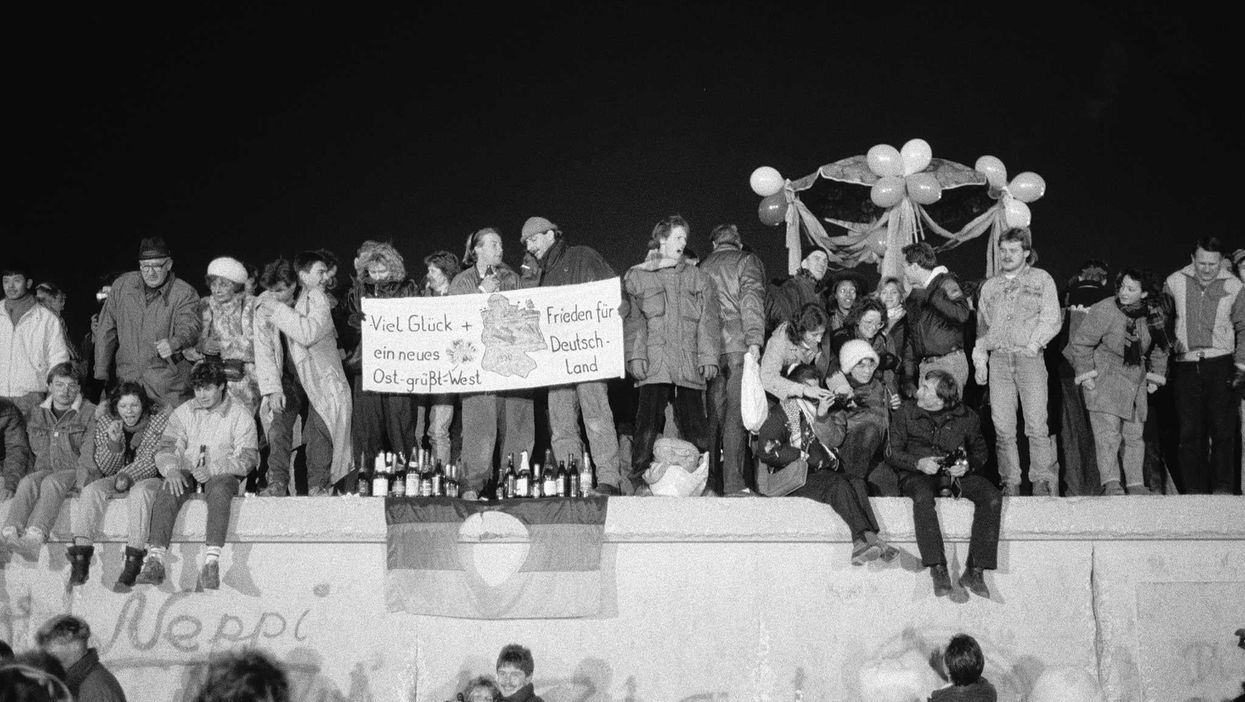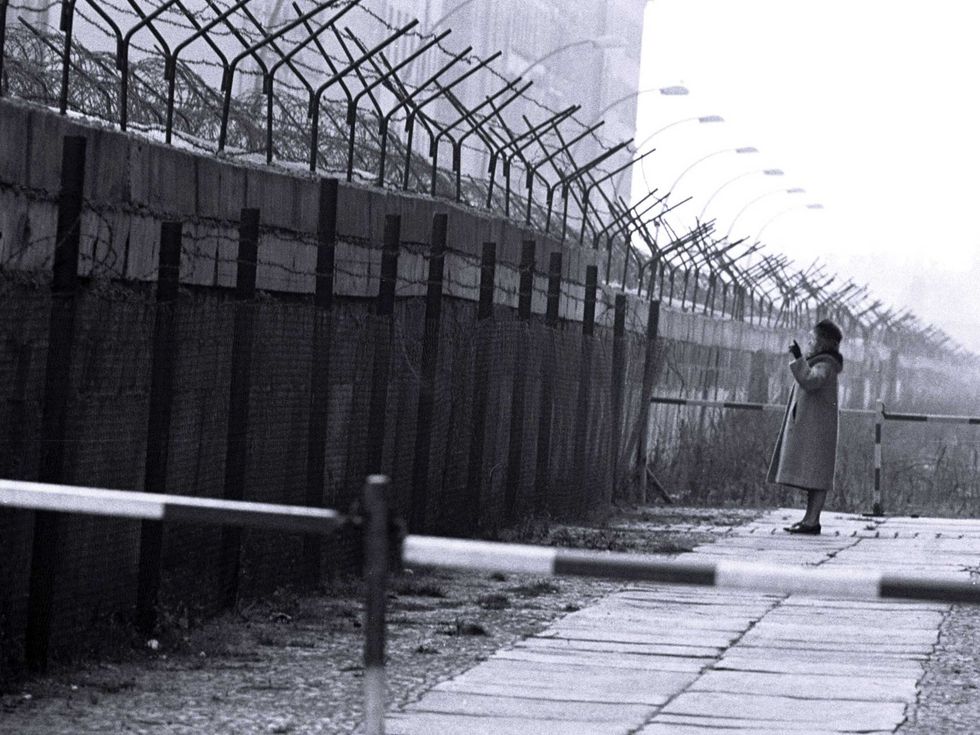News
Rick Noack
Nov 09, 2016

A view from the east of Berliners gathered on the Berlin Wall to celebrate the New Year and the effective end of the city's partition, 1989
Getty Images
On Wednesday, Europe woke up to an election result few had expected or favored. They also woke up to the 27th anniversary of the fall of the Berlin Wall.
It did not take long for commentators to point out the irony of that coincidence: Many Europeans continue to be particularly shocked by Trump's plans to build a wall along the U.S.-Mexican border.
Plans to build walls are not unique to the U.S., of course: The number of border fences has been on the rise for years, in Europe and elsewhere. Hungary, for instance, recently installed a fence to stop the influx of refugees into the country. Other E.U. nations reintroduced border controls for the same reason.
Trump's planned wall at the U.S.-Mexican border has nevertheless caused a stronger backlash, particularly in Western Europe — partially because the announcement was accompanied by other statements by the Republican candidate.
Across the Atlantic Ocean, thousands of miles from Washington, Europe's politicians are struggling to understand the full implications of a Trump presidency.
Is he serious about Germans and French facing “extreme vetting” if they travel to the United States, due to recent terrorist attacks in their country? Will he worsen the situation of Muslims living in the U.S.? And what will be the impact of improved relations between the U.S. and Russia on the Middle East and Syria, in particular?
In a July poll, only 6.3 percent of Germans said they were in favor of a Trump presidency. Similar numbers were reported from across Europe. As of now, there are few signs that Trump and Europe will get along better than those polls suggest.
"Angela Merkel now really is the leader of the free world," journalist Christoph Amend commented on Wednesday morning, referring to a common perception in Europe that Trump is an authoritarian populist.
Europeans have been more careful than some Americans about making comparisons between Adolf Hitler and Donald Trump but liberals on the “old” continent have nevertheless been vocal at expressing their disdain for the candidate.
The U.S. elections have divided the country. Now, Europeans are worried that a Trump presidency could end up dividing Europe, as well.
Donald Trump's relatively friendly attitude toward Russian President Vladimir Putin has confused European leaders who are increasingly worried about Russia's military movements at the continent's eastern borders and in Syria. Now, 27 years after the fall of the Berlin Wall and the end of Western-Soviet hostility, tensions are running high again.
So far, U.S. military support for Western Europe has remained virtually unchallenged and an integral part of European nations' defense strategy. Will that support remain the same under Trump as president?
In Europe, many also fear that Donald Trump could fuel new ideological divisions between liberal governments and more populist ones. This could ultimately end up splitting Europe once again, although in a far different way than 27 years ago.
Next year, the French will vote for a new president. Right-wing National Front candidate Marine Le Pen has a serious chance of winning that election. She was one of the first politicians to congratulate Trump on Wednesday morning.
Copyright: Washington Post
Top 100
The Conversation (0)














